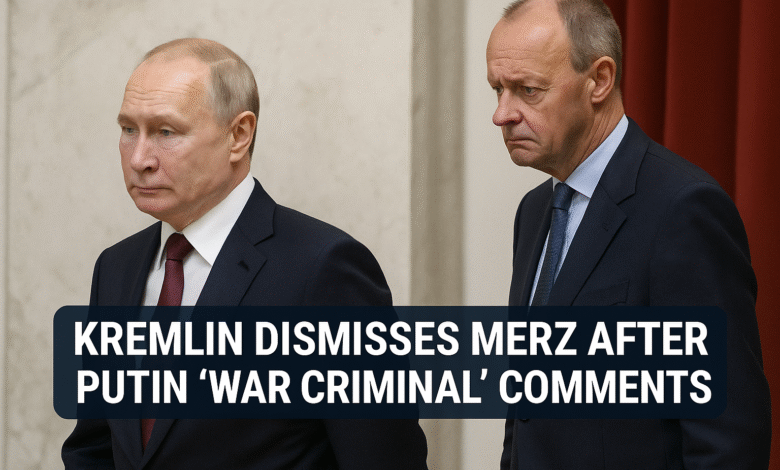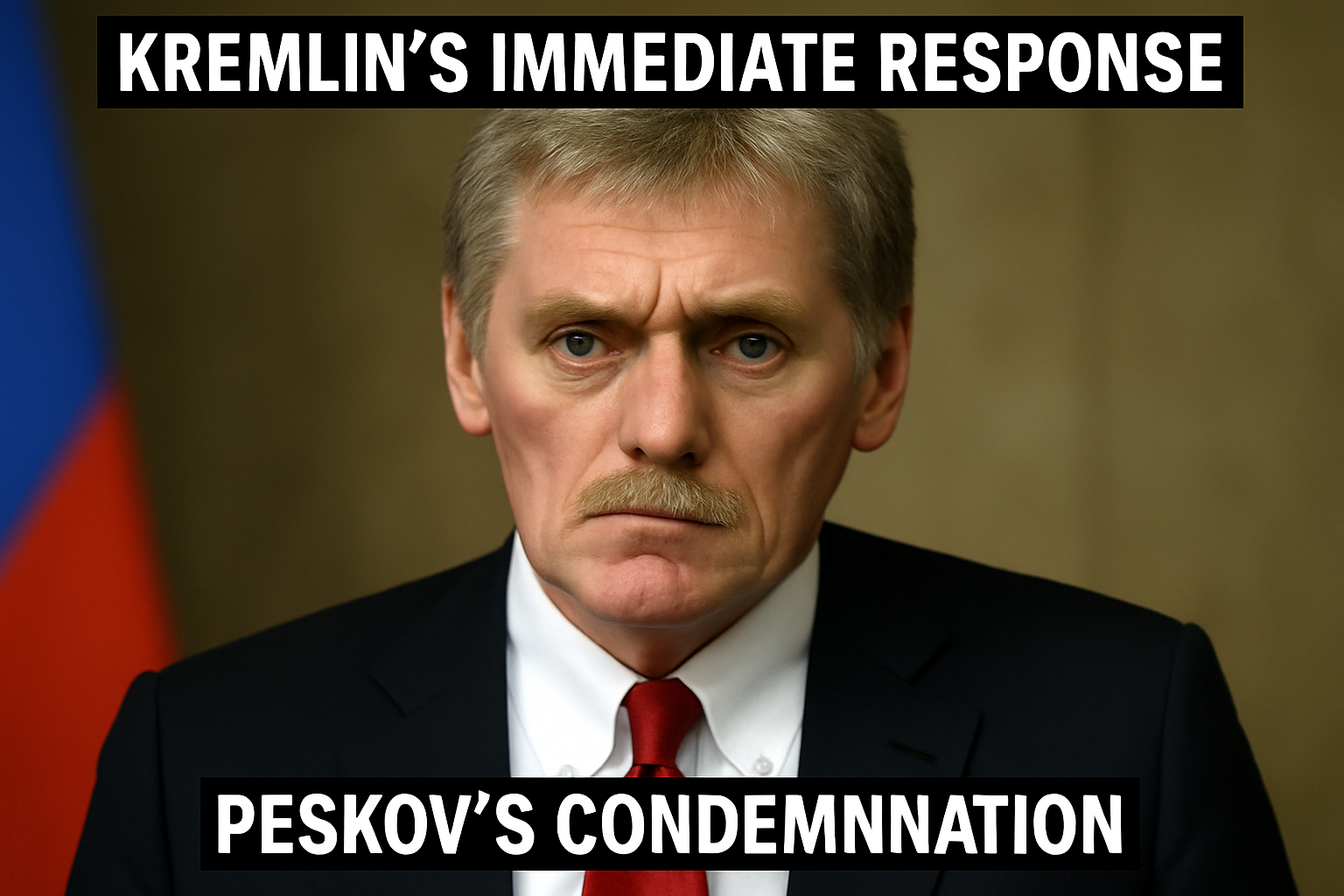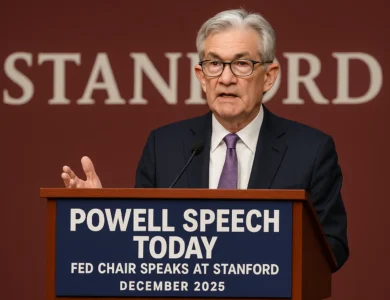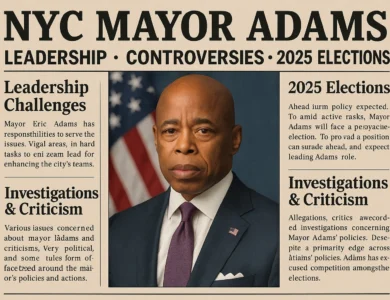
In a dramatic escalation of diplomatic tensions between Berlin and Moscow, the Kremlin reacts to Merz’s verbal attack against Putin with swift condemnation and a complete dismissal of Germany’s role in future Ukraine peace negotiations. German Chancellor Friedrich Merz sparked international controversy when he branded Russian President Vladimir Putin as “perhaps the most serious war criminal of our time” during a television interview that has now fundamentally altered German-Russian diplomatic relations.
The Russian government response to Merz came immediately through Kremlin spokesperson Dmitry Peskov, who declared that Moscow would no longer consider Berlin’s opinions or suggestions regarding Ukraine peace talks following what he described as “very bad statements” against President Putin. This diplomatic rupture represents one of the most significant breakdowns in German-Russian relations since the beginning of the Ukraine conflict and signals a new phase of international isolation for Russia.
Speaking on the sidelines of Putin’s four-day state visit to Beijing, Peskov’s reaction to Merz statements was uncharacteristically harsh, even by current standards of Russian diplomatic discourse. The Kremlin spokesman dismissed the German Chancellor’s remarks as “inflammatory” and suggested that such language disqualified Germany from any meaningful role in future diplomatic initiatives related to the Ukraine crisis.
The timing of Merz’s comments and the Kremlin’s diplomatic response coincides with renewed international discussions about potential peace negotiations, making the German Chancellor’s strong language particularly significant for European diplomacy. The incident underscores the deepening divide between Russia and Western nations, while highlighting the challenges facing any future diplomatic resolution to the ongoing conflict in Ukraine.
The Controversial Statements: What Merz Actually Said
Chancellor’s Television Interview Sparks Outrage
During a broadcast interview with ProSieben.Sat1 on Tuesday evening, German Chancellor Merz Putin comments went far beyond typical diplomatic criticism. Merz stated unequivocally that Putin was “perhaps the most serious war criminal of our time” and insisted there could be “no place for leniency for such individuals” in any future peace negotiations or international agreements.
Key Elements of Merz’s Controversial Statements:
- “War Criminal” designation – Direct accusation against Putin personally
- “Most serious of our time” – Comparative historical assessment
- “No leniency” – Rejection of compromise in future negotiations
- Legal accountability – Calls for international justice mechanisms
- Moral responsibility – Personal culpability for conflict outcomes
Context Behind the Inflammatory Language
The Merz Putin war criminal accusations came during discussions about Germany’s evolving position on Ukraine support and potential peace negotiations. The German Chancellor has been increasingly vocal about his country’s role in supporting Ukraine, recently announcing enhanced military aid packages and stronger sanctions against Russian economic interests.
Background Factors Influencing Merz’s Position:
- Domestic Political Pressure – Growing calls for tougher stance on Russia
- International Coordination – Alignment with EU and NATO positions
- Ukrainian Advocacy – Pressure from Kyiv for stronger German support
- Historical Responsibility – Germany’s complex relationship with Russia
- Electoral Considerations – Public opinion supporting firm action
Legal Implications of War Criminal Allegations
By explicitly labeling Putin a “war criminal,” Merz’s accusations against Putin carry significant legal and diplomatic weight. Such statements typically reference ongoing investigations by international bodies and imply support for future prosecution efforts through international justice mechanisms.
Kremlin’s Immediate Response: Peskov’s Condemnation

Official Moscow Reaction
The Kremlin spokesperson Peskov response was swift and uncompromising, delivered during a press briefing coinciding with Putin’s Beijing visit. Peskov told TASS news agency that “Merz has made very bad statements vis-a-vis Russian President Vladimir Putin,” and that such language fundamentally changed Russia’s approach to German diplomatic initiatives.
Peskov’s Key Response Points:
- “Very bad statements” – Official condemnation of Merz’s language
- Diplomatic consequences – Germany excluded from peace discussions
- “Unpleasant statements” – Pattern of German hostility identified
- Beijing timing – Response delivered during Putin’s China visit
- Media strategy – Public dismissal rather than private diplomacy
Moscow’s Diplomatic Strategy
The Russian diplomatic response Merz reflects Moscow’s broader strategy of isolating critics while maintaining relationships with perceived allies. By publicly dismissing Germany’s potential role in peace negotiations, the Kremlin sends a message to other European leaders about the consequences of direct personal attacks against Putin.
Strategic Elements of Moscow’s Response:
- Public Humiliation – Open dismissal of German diplomatic relevance
- Isolation Tactics – Excluding critical voices from negotiations
- Alliance Building – Contrasting German hostility with Chinese cooperation
- Personal Protection – Defending Putin against legal accusations
- Precedent Setting – Warning other leaders about similar statements
Timing and International Context
The Putin response to Merz came while the Russian president was engaged in high-profile diplomatic activities in Beijing, creating a stark contrast between Russia’s relationship with China and its deteriorating ties with Germany. This timing was likely calculated to emphasize Russia’s alternative diplomatic partnerships.
Historical Context: German-Russian Relations
Evolution of Bilateral Relations
The Germany Russia diplomatic crisis represents a dramatic departure from decades of generally cooperative German-Russian relations, even during periods of broader East-West tension. Germany had traditionally played a mediating role between Russia and other Western nations, making Merz’s statements particularly significant.
Historical German-Russian Relationship Phases:
| Period | Relationship Status | Key Characteristics |
|---|---|---|
| 1990s-2000s | Cooperative Partnership | Energy cooperation, trade growth |
| 2000s-2014 | Strategic Engagement | Nord Stream projects, political dialogue |
| 2014-2022 | Managed Tension | Sanctions with continued dialogue |
| 2022-2025 | Open Hostility | Complete breakdown in relations |
Impact on European Diplomacy
The Merz Putin diplomatic row has significant implications for European Union unity and effectiveness in dealing with the Russia-Ukraine conflict. Germany’s position as Europe’s largest economy and most influential EU member makes this diplomatic breakdown particularly consequential for broader European strategy.
European Diplomatic Implications:
- EU Unity – German position aligns with broader European stance
- Mediation Capacity – Loss of potential diplomatic bridge to Moscow
- Sanctions Coordination – Strengthened European resolve for punitive measures
- Peace Process – Reduced options for future negotiation frameworks
- Alliance Dynamics – Closer alignment with US and UK positions
International Reactions and Analysis
European Union Response
The EU reaction to Kremlin Merz dispute has been notably supportive of the German Chancellor’s position, with several member states echoing similar sentiments about Putin’s legal accountability. European Commission officials have indicated that Merz’s statements reflect widespread European sentiment about Russian leadership responsibility.
EU Member State Positions:
- France – Support for German position on accountability
- Poland – Strong endorsement of war criminal allegations
- Netherlands – Legal backing through ICC investigations
- Baltic States – Historical support for tough stance on Russia
- Nordic Countries – Alignment with German diplomatic position
Atlantic Alliance Perspectives
NATO allies have generally supported the substance of Merz’s criticism of Putin, while noting the diplomatic complications such statements create for any future negotiation processes. The alliance sees the German position as consistent with broader Western policy approaches toward Russian leadership accountability.
Ukrainian Government Response
Kyiv has welcomed the German Chancellor Putin statements as evidence of growing international support for holding Russian leadership legally accountable for actions during the conflict. Ukrainian officials see Merz’s position as strengthening their case for international justice mechanisms.
Economic and Political Implications
Impact on German-Russian Economic Relations
The diplomatic fallout Merz Putin accelerates the ongoing decoupling of German and Russian economic relationships, particularly in energy and industrial sectors. German businesses with Russian interests face increasing political pressure to completely sever remaining connections.
Economic Relationship Status:
- Energy Trade – Already largely terminated due to sanctions
- Industrial Cooperation – Minimal remaining partnerships
- Financial Transactions – Severely restricted by sanctions regime
- Technology Transfer – Completely halted under security restrictions
- Investment Flows – German companies continuing Russian exit
Domestic German Politics
Within Germany, Merz’s Putin war criminal comments have generally been well-received by the public and opposition parties, reflecting widespread German sentiment about Russian actions in Ukraine. The Chancellor’s strong stance helps consolidate domestic support for continued Ukraine assistance.
German Political Reaction:
- Public Opinion – Majority support for tough stance on Putin
- Opposition Parties – Cross-party endorsement of strong position
- Business Community – Acceptance of economic decoupling necessity
- Civil Society – Human rights groups applaud accountability focus
- Media Coverage – Generally positive coverage of Chancellor’s statement
Legal Dimensions: War Crimes Allegations
International Legal Framework
The Putin war crimes accusations Merz made reference to ongoing international legal processes, including investigations by the International Criminal Court (ICC) and other international bodies examining alleged violations of international humanitarian law during the Ukraine conflict.
Current Legal Proceedings:
- ICC Investigation – Ongoing examination of alleged war crimes
- European Court Proceedings – Various national court investigations
- UN Mechanisms – Documentation and evidence collection efforts
- National Prosecutions – Individual country legal initiatives
- Evidence Gathering – International cooperation on documentation
Implications for Future Diplomacy
The legal accountability focus Putin creates complex challenges for any future diplomatic negotiations, as it essentially rules out amnesty provisions that might otherwise facilitate peace agreements. This legal dimension adds complexity to potential future conflict resolution efforts.
Media Coverage and Public Opinion
International Media Response
Global media coverage of the Kremlin dismisses Merz story has highlighted the dramatic nature of the diplomatic breakdown, with most international outlets emphasizing the unprecedented nature of such direct personal attacks on Putin by a major European leader.
Media Coverage Themes:
- Diplomatic Breakdown – Focus on relationship deterioration
- Legal Implications – War crimes accountability discussions
- European Unity – German position as representative of EU stance
- Peace Process Impact – Consequences for future negotiations
- Historical Context – Comparison with past diplomatic crises
Social Media and Digital Responses
Online discussions about the Merz Putin confrontation have been extensive, with significant engagement across various platforms. The story has generated substantial international interest and debate about appropriate diplomatic language and accountability mechanisms.
Future Implications and Scenarios

Potential Diplomatic Consequences
The long-term impact Kremlin Merz dispute could significantly reshape European diplomatic approaches to Russia and influence the structure of any future peace negotiations. Russia’s explicit exclusion of Germany from peace discussions may force alternative diplomatic frameworks.
Possible Future Scenarios:
- Complete Diplomatic Isolation – Russia further isolated from European dialogue
- Alternative Mediation – Non-European countries assuming greater roles
- Bilateral Escalation – Further deterioration in German-Russian relations
- Regional Realignment – Changed dynamics in European security architecture
- Long-term Hostility – Permanent breakdown in bilateral relationships
Impact on Ukraine Conflict Resolution
The peace negotiations impact Merz Putin could complicate future diplomatic efforts by removing Germany as a potential mediator while strengthening accountability demands that Russia finds unacceptable. This dynamic may extend the timeline for any negotiated settlement.
European Security Architecture
The German Russian diplomatic crisis contributes to broader changes in European security relationships, with implications for NATO, EU defense initiatives, and bilateral security cooperation across the continent.
Analysis: Strategic Communication and Diplomacy
Diplomatic Language Evolution
The Merz verbal attack Putin represents a broader trend toward more direct and confrontational diplomatic language between Western leaders and Russia. This evolution reflects changing international norms about appropriate diplomatic discourse during conflicts.
Communication Strategy Changes:
- Direct Accusations – Personal responsibility rather than institutional criticism
- Legal Framework – Emphasis on criminal accountability
- Public Statements – Open confrontation rather than private diplomacy
- Historical Comparisons – Placing current actions in historical context
- Moral Clarity – Explicit ethical judgments in diplomatic language
Effectiveness of Strong Language
The strategic impact Merz statements raises questions about whether direct confrontational language advances diplomatic objectives or simply escalates tensions without achieving concrete results. Academic and policy experts remain divided on this approach.
Also Reads: Court Blocks Trump’s Venezuelan Deportations Under Alien Enemies Act
Conclusion
The Kremlin reacts to Merz’s verbal attack against Putin incident marks a significant escalation in German-Russian diplomatic hostility and reflects broader changes in how Western leaders engage with Russian leadership. Chancellor Merz’s description of Putin as “perhaps the most serious war criminal of our time” crossed traditional diplomatic red lines and prompted an immediate and comprehensive Russian rejection of future German involvement in Ukraine-related negotiations.
The Russian government response to Merz through Kremlin spokesperson Dmitry Peskov’s dismissal of German diplomatic relevance represents more than routine diplomatic disagreement—it signals a fundamental breakdown in one of Europe’s most important bilateral relationships. This diplomatic rupture has immediate implications for European unity, peace process dynamics, and the broader international approach to holding Russian leadership accountable for actions during the Ukraine conflict.






